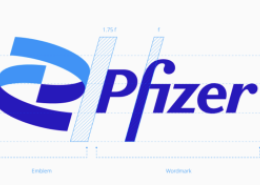Global Strategic Partners Merck KGaA, Darmstadt, Germany, and Pfizer Finalize Agreement to Co-Promote XALKORI® (crizotinib)
In the second and third quarters of 2015, Merck KGaA, Darmstadt, Germany, and Pfizer will begin co-promoting XALKORI in the United States, Canada, Japan and five European Union countries (France, Germany, Italy, Spain and the United Kingdom) In the United States and Canada, XALKORI will be co-promoted by EMD Serono, the US and Canadian biopharmaceutical businesses of Merck KGaA, Darmstadt, Germany Co-promotion of XALKORI allows the alliance between Merck KGaA, Darmstadt, Germany, and Pfizer to establish a combined oncology sales organization in key markets for the program
Merck KGaA, Darmstadt, Germany, and Pfizer Inc., New York, US, today announced the finalization of the co-promotion agreement allowing the companies to co-promote Pfizer’s anaplastic lymphoma kinase (ALK) inhibitor XALKORI® (crizotinib). This agreement showcases the alliance’s commitment to establishing a combined oncology sales organization in key markets in advance of the potential launch of avelumab*-based treatment regimens in the future.
XALKORI is the first ALK inhibitor approved in the United States, Japan and the European Union (EU) and is supported by two positive global randomized trials in the first- and second-line ALK-positive advanced non-small cell lung cancer (NSCLC) treatment settings. To date, globally more than 8,000 patients have been treated with XALKORI, including those who received XALKORI in clinical trials.
Under the agreement, XALKORI will be co-promoted in two waves, the first of which will begin in the second and third quarters of 2015 in the United States, Canada, Japan and five European Union countries (France, Germany, Italy, Spain and the United Kingdom). In the United States and Canada, XALKORI will be co-promoted by EMD Serono, the US and Canadian biopharmaceutical businesses of Merck KGaA, Darmstadt, Germany. The second wave will begin in 2016 and includes China and Turkey.
In 2015, Merck KGaA, Darmstadt, Germany, will receive a reimbursement associated with its promotion of XALKORI, followed by an 80 percent (Pfizer), 20 percent (Merck KGaA, Darmstadt, Germany) profit sharing on the product starting in 2016. The co-promotion term will last through December 31, 2020 for the United States, Canada, Japan, France, Germany, Italy, Spain and the United Kingdom, and from January 1, 2016 through December 31, 2021 in China and Turkey. Pfizer will report the sales of XALKORI in countries where it is co-promoted with Merck KGaA, Darmstadt, Germany.
"We are proud and excited to share the legacy of XALKORI, a medicine that changed the treatment paradigm for patients with ALK-positive metastatic NSCLC, with Merck KGaA, Darmstadt, Germany,” said Liz Barrett, president and general manager, Pfizer Oncology. “Through our co-promotion of XALKORI, we will establish a best-in-class global sales organization that will be exceptionally prepared for the potential launches of our future oncology medicines.”
“As we progress our robust program to co-develop and co-commercialize avelumab, the co-promotion agreement is an exciting milestone for the alliance between Merck KGaA, Darmstadt, Germany, and Pfizer, allowing us to establish our combined oncology sales organization in key markets for the program,” said Dr. Andrew Schiermeier, head of Global Oncology and general manager for the Alliance for Merck KGaA, Darmstadt, Germany, adding: “For Merck KGaA, Darmstadt, Germany, this agreement is particularly important as it accelerates the establishment of our United States and Canada oncology sales organization ahead of our potential avelumab launches and positions us for future success in this market.”
This co-promotion relationship is related to the announcement in November 2014 of a global strategic alliance between Merck KGaA, Darmstadt, Germany, and Pfizer to jointly develop and commercialize avelumab, an investigational anti-PD-L1 monoclonal antibody, to accelerate the development of immuno-oncology medicines for patients with cancer. The immuno-oncology alliance will also advance Pfizer’s PD-1 antibody.
About Non-small Cell Lung Cancer
Globally, lung cancer is the most common cause of cancer-related deaths in men and the second most common in women, responsible for almost twice as many deaths as both breast and prostate cancer combined1. Non-small cell lung cancer is the most common type of lung cancer, accounting for 85 to 90 percent of all lung cancers2. Locally advanced and metastatic disease account for approximately 35 to 40 percent3 and 70 percent4 of patients, respectively with NSCLC.
About XALKORI® (crizotinib)
XALKORI is a kinase inhibitor indicated in the US for the treatment of patients with metastatic non-small cell lung cancer whose tumors are anaplastic lymphoma kinase (ALK)-positive as detected by an FDA-approved test. The US indication is not limited to any specific line of therapy. In the EU, XALKORI is indicated for the treatment of adults with previously treated ALK-positive advanced NSCLC. XALKORI has received approval in more than 80 countries.
XALKORI® Important Safety Information
Hepatotoxicity: Drug-induced hepatotoxicity with fatal outcome occurred in 0.2% of patients treated with XALKORI across clinical trials (n=1225). Transaminase elevations generally occurred within the first 2 months of treatment. Monitor with liver function tests including ALT and total bilirubin every 2 weeks during the first 2 months of treatment, then once a month and as clinically indicated. Permanently discontinue for ALT or AST elevation greater than 3 times ULN with concurrent total bilirubin elevation greater than 1.5 times ULN (in the absence of cholestasis or hemolysis), otherwise temporarily suspend and dose reduce XALKORI as indicated.
Pneumonitis: Severe, life-threatening, or fatal interstitial lung disease (ILD)/pneumonitis can occur in patients treated with XALKORI. Across clinical trials (n=1225), 2.5% of XALKORI-treated patients had any grade ILD, 0.9% of patients had Grade 3 or 4, and 0.5% had fatal cases. These cases generally occurred within 2 months after the initiation of treatment. Monitor patients for pulmonary symptoms indicative of pneumonitis. Exclude other causes and permanently discontinue XALKORI in patients with drug related pneumonitis.
QT Interval Prolongation: QTc prolongation can occur in patients treated with XALKORI. Across clinical trials (n=1225), QTc prolongation (all grades) was observed in 2.7% of patients and QTc greater than 500 ms on at least 2 separate ECGs occurred in 1.4% of patients. Avoid use of XALKORI in patients with congenital long QT syndrome. Consider periodic monitoring with electrocardiograms and electrolytes in patients who have a history of or predisposition for QTc prolongation, or who are taking medications that prolong the QT interval. Permanently discontinue XALKORI in patients who develop QTc greater than 500 ms or greater than or equal to 60 ms change from baseline with Torsade de pointes, polymorphic ventricular tachycardia, or signs/symptoms of serious arrhythmia, otherwise temporarily suspend and dose reduce XALKORI as indicated.
Bradycardia: Symptomatic bradycardia can occur in patients receiving XALKORI. Across clinical trials, bradycardia with a heart rate less than 50 beats per minute occurred in 11% of patients treated with XALKORI (n=1174). Monitor heart rate and blood pressure regularly. Avoid using XALKORI in combination with other agents known to cause bradycardia to the extent possible. Permanently discontinue for life-threatening bradycardia due to XALKORI; however, if associated with concomitant medications known to cause bradycardia or hypotension, hold XALKORI until recovery to asymptomatic bradycardia or to a heart rate of 60 bpm or above. If concomitant medications can be adjusted or discontinued, restart XALKORI at 250 mg once daily with frequent monitoring. Otherwise temporarily suspend and resume or dose reduce XALKORI as indicated.
Embryofetal Toxicity: XALKORI can cause fetal harm when administered to a pregnant woman. Women of childbearing potential should be advised to avoid becoming pregnant while receiving XALKORI. If the patient or their partner becomes pregnant while taking this drug, apprise the patient of the potential hazard to the fetus.
Adverse Reactions: Safety was evaluated in a phase 3 study in patients with ALK-positive metastatic NSCLC randomized to XALKORI (n=172) or chemotherapy (n=171). Serious adverse reactions were reported in 37.2% patients treated with XALKORI. The most frequent serious adverse reactions reported in patients treated with XALKORI were pneumonia (4.1%), pulmonary embolism (3.5%), dyspnea (2.3%), and ILD (2.9%). Fatal adverse reactions in XALKORI-treated patients occurred in 9 (5%) patients, consisting of: acute respiratory distress syndrome, arrhythmia, dyspnea, ILD, pneumonia, pneumonitis, pulmonary embolism, respiratory failure, and sepsis. Common adverse reactions occurring in ≥25% included vision disorder (diplopia, photophobia, photopsia, vision blurred, visual acuity reduced, visual impairment, vitreous floaters), diarrhea, nausea, vomiting, constipation, edema, decreased appetite, fatigue, upper respiratory infection, and dysgeusia. Grade 3 or 4 events occurring at a higher incidence with XALKORI than with chemotherapy and at greater than 2% incidence were syncope (3%), QT prolongation (3%), and pulmonary embolism (5%). Elevation of ALT of any grade occurred in 76% of patients and grade 3 or 4 in 17% of patients. Neutropenia of any grade occurred in 49% of patients and grade 3 or 4 in 12% of patients. Lymphopenia of any grade occurred in 51% of patients and grade 3 or 4 in 9% of patients. Renal cysts occurred in 4% and neuropathy in 19% of patients treated with XALKORI.
Drug Interactions: Exercise caution with concomitant use of moderate CYP3A inhibitors. Avoid grapefruit or grapefruit juice which may increase plasma concentrations of crizotinib. Avoid concomitant use of strong CYP3A inducers and inhibitors. Dose reduction may be needed for coadministered drugs that are predominantly metabolized by CYP3A.
Nursing Mothers: Given the potential for serious adverse reactions in nursing infants, consider whether to discontinue nursing or discontinue XALKORI.
Hepatic Impairment: XALKORI has not been studied in patients with hepatic impairment. As crizotinib is extensively metabolized in the liver, hepatic impairment is likely to increase plasma Crizotinib concentrations. Use caution in patients with hepatic impairment.
Renal Impairment: Administer XALKORI at a starting dose of 250 mg taken orally once daily in patients with severe renal impairment (CLcr<30 mL/min) not requiring dialysis. No starting dose adjustment is needed for patients with mild and moderate renal impairment.
For more information and full prescribing information, please visit www.XALKORI.com.
Alliance between Merck KGaA, Darmstadt, Germany, and Pfizer Inc., New York, US
Immuno-oncology is a top priority for Merck KGaA, Darmstadt, Germany, and Pfizer Inc. The global strategic alliance between Merck KGaA, Darmstadt, Germany, and Pfizer Inc, New York, US, enables the companies to benefit from each other’s strengths and capabilities and further explore the therapeutic potential of avelumab, an investigational anti-PD-L1 antibody initially discovered and developed by Merck KGaA, Darmstadt, Germany. The immuno-oncology alliance will jointly develop and commercialize avelumab and advance Pfizer’s PD-1 antibody. The companies will collaborate on up to 20 high priority immuno-oncology clinical development programs, including combination trials, many of which are expected to commence in 2015.
Pfizer Inc.: Working together for a healthier world®
At Pfizer, we apply science and our global resources to bring therapies to people that extend and significantly improve their lives. We strive to set the standard for quality, safety and value in the discovery, development and manufacture of health care products. Our global portfolio includes medicines and vaccines as well as many of the world's best-known consumer health care products. Every day, Pfizer colleagues work across developed and emerging markets to advance wellness, prevention, treatments and cures that challenge the most feared diseases of our time. Consistent with our responsibility as one of the world's premier innovative biopharmaceutical companies, we collaborate with health care providers, governments and local communities to support and expand access to reliable, affordable health care around the world. For more than 150 years, Pfizer has worked to make a difference for all who rely on us. To learn more, please visit us at www.pfizer.com.
Merck KGaA, Darmstadt, Germany
Merck KGaA of Darmstadt, Germany, is a leading company for innovative and top-quality high-tech products in healthcare, life science and performance materials. The company has six businesses – Biopharmaceuticals, Consumer Health, Allergopharma, Biosimilars, Life Science and Performance Materials – and generated sales of € 11.3 billion in 2014. Around 39,000 employees work in 66 countries to improve the quality of life for patients, to foster the success of customers and to help meet global challenges. Merck KGaA, Darmstadt, Germany, is the world’s oldest pharmaceutical and chemical company – since 1668, the company has stood for innovation, business success and responsible entrepreneurship. Holding an approximately 70% interest, the founding family remains the majority owner of the company to this day. Merck KGaA, Darmstadt, Germany holds the global rights to the Merck name and brand. The only exceptions are Canada and the United States, where the company operates as EMD Serono, EMD Millipore and EMD Performance Materials.
All Merck KGaA, Darmstadt, Germany, press releases are distributed by e-mail at the same time they become available on the EMD Group Website. In case you are a resident of the US or Canada, please go towww.emdgroup.com/subscribe to register again for your online subscription of this service as our newly introduced geo-targeting requires new links in the email. You may later change your selection or discontinue this service.
Pfizer Disclosure Notice
The information contained in this release is as of April 7, 2015. Pfizer assumes no obligation to update forward-looking statements contained in this release as the result of new information or future events or developments.
This release contains forward-looking information about an agreement between Pfizer and Merck KGaA, Darmstadt, Germany, to co-promote Pfizer’s XALKORI in certain markets as well as about the companies’ immuno-oncology alliance involving avelumab and Pfizer’s anti-PD-1 antibody and clinical development plans, including their potential benefits, that involves substantial risks and uncertainties that could cause actual results to differ materially from those expressed or implied by such statements. Risks and uncertainties include, among other things, uncertainties regarding the success of the co-promotion arrangement and whether the companies will realize the anticipated benefits of the co-promotion arrangement; the uncertainties inherent in research and development, including the ability to meet anticipated clinical study commencement and completion dates as well as the possibility of unfavorable study results; risks associated with interim data, including the risk that the final results of the Phase I study for avelumab and/or additional clinical trials may be different from (including less favorable than) the interim data results and may not support further clinical development; the risk that clinical trial data are subject to differing interpretations, and, even when we view data as sufficient to support the safety and/or effectiveness of a product candidate, regulatory authorities may not share our views and may require additional data or may deny approval altogether; whether and when drug applications may be filed in any jurisdictions for any potential product candidates or combination therapies; whether and when any such applications may be approved by regulatory authorities, which will depend on the assessment by such regulatory authorities of the benefit-risk profile suggested by the totality of the efficacy and safety information submitted; decisions by regulatory authorities regarding labeling and other matters that could affect the availability or commercial potential of any of such product candidates or combination therapies; and competitive developments.
A further description of risks and uncertainties can be found in Pfizer’s Annual Report on Form 10-K for the fiscal year ended December 31, 2014 and in its subsequent reports on Form 10-Q, including in the sections thereof captioned “Risk Factors” and “Forward-Looking Information That May Affect Future Results”, as well as in its subsequent reports on Form 8-K, all of which are filed with the SEC and available at www.sec.gov and www.pfizer.com.
1 American Cancer Society. (2011). Global Facts & Figures Second Edition. Retrieved from:http://www.cancer.org/acs/groups/content/@epidemiologysurveilance/documents/document/acspc-027766.pdf
2 American Cancer Society. (2014). Lung Cancer (Non-Small Cell) [Fact sheet]. Retrieved from:http://www.cancer.org/acs/groups/cid/documents/webcontent/003115-pdf.pdf
3 Blumenschein, G. R., Paulus, R., Curran, W. J., Robert, F., Fossella, F., Werner-Wasik, M., Herbst, R. S., Doescher, P. O., Choy, H., & Komaki, R. (2011). Phase II study of cetuximab in combination with chemoradiation in patients with stage IIIA/B non-small-cell lung cancer: RTOG 0324. Journal of clinical oncology: official journal of the American Society of Clinical Oncology, 17, 2312–2318.
4 Wood, S. L., Pernemalm, M., Crosbie, P. A., & Whetton, A. D. (2013). The role of the tumor-microenvironment in lung cancer-metastasis and its relationship to potential therapeutic targets. Cancer treatment reviews, 4,558–566.
*Avelumab is the proposed International Nonproprietary Name (INN) for the anti-PD-L1 monoclonal antibody (MSB0010718C)
Merck KGaA, Darmstadt, Germany
Media:
Markus Talanow, +49 6151 72 7144
or
Investor Relations:
+49 6151 72 3321
or
Pfizer Inc, New York, US
Media:
Sally Beatty, +1 212 733 6566
or
Investor Relations:
Ryan Crowe, +1 212 733 8160








